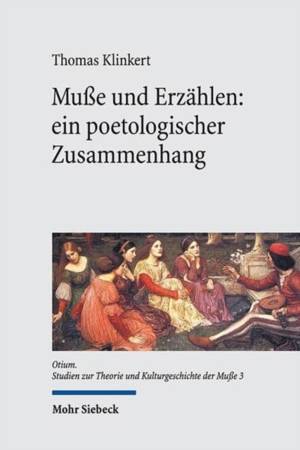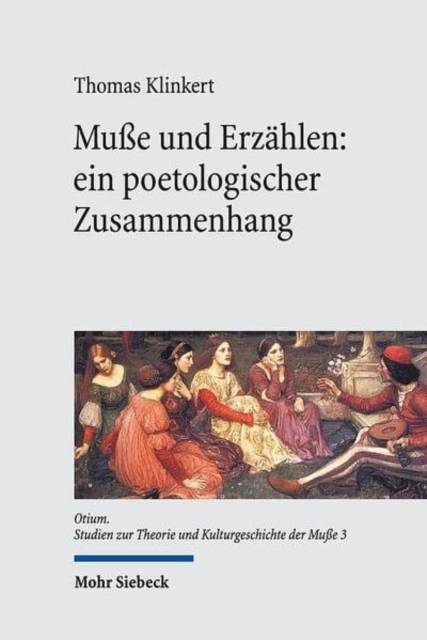
Bedankt voor het vertrouwen het afgelopen jaar! Om jou te bedanken bieden we GRATIS verzending (in België) aan op alles gedurende de hele maand januari.
- Afhalen na 1 uur in een winkel met voorraad
- In januari gratis thuislevering in België
- Ruim aanbod met 7 miljoen producten
Bedankt voor het vertrouwen het afgelopen jaar! Om jou te bedanken bieden we GRATIS verzending (in België) aan op alles gedurende de hele maand januari.
- Afhalen na 1 uur in een winkel met voorraad
- In januari gratis thuislevering in België
- Ruim aanbod met 7 miljoen producten
Zoeken
€ 72,95
+ 145 punten
Omschrijving
English summary: Thomas Klinkert conducts an analysis of the poetological relationship between leisure (Muae) and narration. By studying literary texts in Italian, French, Spanish, and German from the Middle Ages to the present, he shows that in these texts the telling of stories as a social act of communication, or as an individual writing process, is realized in situations of leisure, or else that situations of leisure make it possible to reflect upon future acts of narration and of writing and to bring them about. A diachronic perspective, from the 13th to the 20th century, makes apparent not only the fundamental poetological connection of leisure and narration, but also the historically specific semantizations of leisure and the different conceptions of individuality, society, and communication associated with them. German description: Thomas Klinkert untersucht den poetologischen Zusammenhang von Musse und Erzahlen anhand von literarischen Texten in italienischer, franzosischer, spanischer und deutscher Sprache vom Mittelalter bis zur Gegenwart. Er zeigt, wie in diesen Texten das Erzahlen als soziale Kommunikationshandlung oder als individueller Schreibvorgang aus Situationen der Musse heraus entfaltet wird oder aber wie die Musse Anlass gibt, uber kunftige Schreib- und Erzahlhandlungen nachzudenken und diesen Vorschub zu leisten. Im diachronen Langsschnitt vom 13. bis zum 20. Jahrhundert wird nicht nur der grundlegende poetologische Nexus von Musse und Erzahlen erkennbar, sondern es werden auch historisch je unterschiedliche Semantisierungen von Musse und die damit verbundenen unterschiedlichen Auffassungen von Individualitat, Gesellschaft und Kommunikation erkennbar.
Specificaties
Betrokkenen
- Auteur(s):
- Uitgeverij:
Inhoud
- Aantal bladzijden:
- 223
- Taal:
- Duits
- Reeks:
Eigenschappen
- Productcode (EAN):
- 9783161543821
- Verschijningsdatum:
- 1/08/2016
- Uitvoering:
- Hardcover
- Formaat:
- Genaaid
- Afmetingen:
- 162 mm x 237 mm
- Gewicht:
- 408 g

Alleen bij Standaard Boekhandel
+ 145 punten op je klantenkaart van Standaard Boekhandel
Beoordelingen
We publiceren alleen reviews die voldoen aan de voorwaarden voor reviews. Bekijk onze voorwaarden voor reviews.









